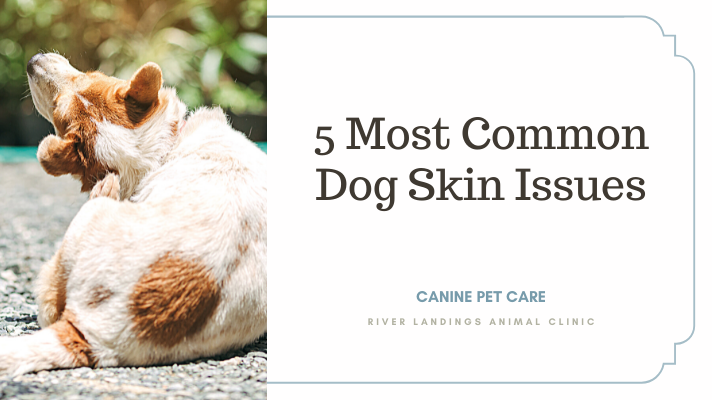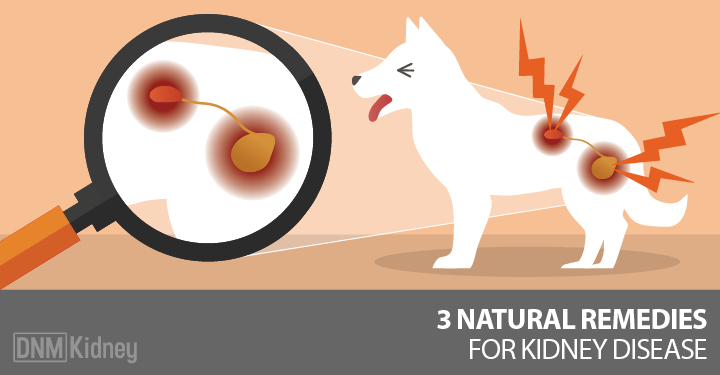New Info For Choosing Dogs Supplements
Wiki Article
How Do Cat And Dog Skin Allergies Helped With Probiotics?
Probiotics may play an important part in managing and alleviating allergies to the skin in cats and dogs. The beneficial bacteria help keep a healthy microbiome inside the gut. This supports the immune system and skin. Probiotics are beneficial for pets suffering from allergies:
Immune System Regulation
Balanced Immune Reaction:
Function: Through encouraging beneficial bacteria growth and reducing harmful bacteria in the gut, probiotics can aid in regulating the immune system.
Benefits: A healthy immune system that is balanced can reduce hypersensitivity, which causes allergies. This reduces the severity of and frequency of allergic reactions for pets.
Inflammation Reduction
Anti-inflammatory Effects:
Function: Certain strains of probiotics are able to create anti-inflammatory compounds, and regulate inflammatory responses in the body.
Benefits - By reducing the systemic swelling, probiotics can help to ease itching, inflammation, as well as other symptoms associated with allergic reactions.
Gut-Skin Axis
Improved gut health:
Function: The gut's skin axis refers the relationship between gut health and skincare health. Probiotics aid in improving gut barrier health and overall digestion.
Benefits: A healthy digestive system can stop the leakage of toxins and allergens into the bloodstream, which can trigger skin reactions. This may lead to the reduction of allergic skin symptoms.
Strengthening Skin Barrier
Improved Skin Barrier
Function: Probiotics have the capacity to affect the distribution and production of ceramides, as well in other lipids that are essential to maintaining an effective skin barrier.
Benefits: A stronger skin barrier will help protect you from environmental allergens. Also, it reduces the possibility of developing allergic reactions.
Allergy Symptom Management
Pain Relief:
Probiotics function: They regulate the release of histamines (and other chemicals) that trigger allergic reactions.
Benefits: This product can help reduce itching, inflammation and irritation that are associated with skin allergies.
The Enhanced Diversity of Microorganisms
A broader range of microbial species is increased:
Function: The probiotics improve the diversity of the microbiome in your gut. It is vital for an optimal response to your immune system.
Benefits : A varied Microbiome can support overall health as well as skin health. This is achieved by preventing the growth of harmful bacteria which could contribute to allergies.
Certain Probiotic strains
Lactobacillus (common probiotic strain) and Bifidobacterium (common probiotic strain) Probiotics that are commonly used are effective in the treatment of skin allergies in pets.
Lactobacillus Rhamnosus GGG is known for its ability to improve the health of your gut and decrease allergy symptoms.
Bifidobacterium helps in reducing inflammation as well as the improvement of the immune response.
Utilization and other factors
Dosage & Administration: The correct dosage of probiotics will depend on the pet’s weight, size and needs for health. Follow the instructions on the label or any advice from your veterinarian.
Formulations: There are a variety of different types of probiotics that you can give to your pet, such as capsules or powders. To ensure safety and efficacy it's important to choose the best quality, pet-specific product.
Monitoring and side negative effects: Although probiotics are generally safe however, it's essential to monitor your pet's health for any adverse reactions, including stomach upset. Start with a smaller dose and gradually increasing it will help minimize side consequences.
Conclusion
Probiotics have been proven to be beneficial in treating skin allergies, especially in cats and dogs. They work by controlling their immune system, decreasing inflammation, enhancing the skin barrier and improving the overall health of the gut. Regular usage can lead to a reduction of allergy symptoms. Probiotics also aid in maintaining healthier skin for pets and an improved satisfaction with their lives. Have a look at the most popular herbs good for dogs blog for website advice including pet sleep supplements, pet supplements for pets with weak bones, cushings disease alternative treatment, pet supplements for pets with fear of anesthesia, pet devil's claw supplements, pet cognitive supplements, pet supplements for pets with fear of elevators and escalators, pet supplements for show dogs and cats and more.

How Do Omega-3 Fatty Acids For Pets And Cats Aid Kidney Failure?
Omega-3 fatty acids, specifically EPA(eicosapentaenoic ACR) as well as DHA (docosahexaenoic acr) can help manage kidney problems by supporting kidney health. What they do to aid in managing kidney failure:
Anti-inflammatory Properties
Reduce Inflammation
Function: Omega-3 acids are anti-inflammatory and lower the production of the cytokines, eicosanoids and other substances that promote inflammation.
Benefits In reducing inflammation within the kidneys, omega-3s can help slow the progression of kidney damage and improve kidney function.
Blood Pressure Regulation
Lowering blood pressure
Function: The omega-3 fatty acid helps regulate blood pressure, through enhancing vascular function and reducing inflammation in the system.
Benefits Reduced blood pressure eases the stress on kidneys and helps to protect remaining kidney function.
Proteinuria Reduction
Reducing Proteinuria:
Function: Omega-3s may help reduce the leakage of protein into the urine, also known as proteinuria. It is a frequent problem in kidney disease.
The benefits of decreasing proteinuria This can help protect kidney function and minimize the risk of further kidney damage.
Glomerular filtering rate (GFR) and preservation
Supporting Kidney Filtration
Function: The omega-3 fats are vital to maintaining the integrity of kidney's glomerular filtration process.
Benefits: A stable GFR helps to preserve kidney function and reduce the development of chronic renal disease.
Appetizer Stimulation and Nutritional Support
How to increase appetite
Omega-3s aid in improving appetite and improve the intake of nutrients for pets suffering from kidney failure.
Benefits : A healthier diet can improve overall health. It also helps maintain muscle mass and weight in animals suffering from kidney disease.
Cardiovascular Health
Helping Heart Health
Function Omega-3s can be beneficial to heart health. They can reduce inflammation, reduce blood pressure and improve the lipid profile.
Benefits Improved cardiovascular fitness can reduce the risk of kidney failure complications such as heart ailments, and improve your overall health.
Antioxidant Effects
Reducing Oxidative Stress:
Function Omega-3 fatty acids possess antioxidant properties that help reduce kidney oxidative stress.
Benefits: By decreasing oxidative damage to kidney cells you can enhance your kidney function and reduce disease progression.
Considerations and Usage
Dosage and administration: The appropriate dosage of Omega-3 fatty acids will depend on the pet's size, weight, and health needs. Follow the recommendations of your veterinarian or the instructions provided on the package. Omega-3s are derived from supplements made from fish oil that are specifically designed for pets.
Omega-3 supplements that are available for pets come in various forms. Capsules, liquid oils, and chews are all options. To ensure safety and effectiveness it is essential to choose a product of high quality.
Omega-3 supplements can trigger stomach upsets in certain animals. To minimize side reactions, start with a small dose and gradually increase the dose. Be sure to keep an eye out for any possible side effects, like diarrhea or vomiting.
The article's conclusion is:
Omega-3 fat acids have substantial benefits when it comes to treating kidney failure, both in pets and in dogs. Their anti-inflammatory, blood pressure-lowering, proteinuria-reducing, and appetite-stimulating properties help support kidney function and overall health. Omega-3s are an excellent way to improve your pet's quality of well-being and longevity. Have a look at the recommended helpful resource on kidney failure in dogs for more examples including pet heart spet hops supplements, pet supplements for pets with fear of dental work, pet supplements for pets with cancer, pet supplements for senior pets, pet supplements for pets with fear of abandonment, pet memory supplements, pet omega-3 supplements, pet bone broth supplements and more.

Oregano Oil Aids In Treating Yeast Infections In Cats And Dogs.
Oregano oil can be used as an herbal remedy for treating yeast-related infections in dogs and cats. Its powerful antimicrobial properties is especially effective against fungal pathogens, such as Candida. Here are a few ways that oregano oils may treat yeast infections.
Antifungal Properties
Active Compounds:
Function: Oregano oil contains carvacrol and thymol. Both are potent antimicrobial agents.
Benefits: These compounds are known to inhibit the spread and growth of yeast-related infections like Candida species.
Antimicrobial Activity
Broad-Spectrum Action:
Oregano Oil is a broad spectrum antimicrobial effects that includes bacteria as well as fungi.
Benefits: Its capacity to combat fungal growth helps decrease yeast infections in dogs as well as cats, particularly in the skin and ears.
Anti-inflammatory effects
Reduce inflammation
Oregano essential oil contains anti-inflammatory compounds that help to reduce the symptoms of yeast infections, such as itching and inflammation.
Benefits: Essential oil of oregano is effective in decreasing inflammation. It can also promote healing of skin irritations and mucous surfaces that are affected by the fungus.
Function of the Support Immune System
Immune Modulation:
Oregano essential oil helps boost the immune system by increasing the body's natural defences against infection.
Benefits: Enhancing the immune response helps the body better fight off infections, including yeast.
Use and Considerations
Topical Application - Dilute oregano oils with carrier oils (such a coconut oil or olive) before applying them topically. The typical dilution ratio is 1 to 2 drops of oregano oil per tablespoon of carrier oil.
Avoid Ingestion: The oil of oregano is extremely concentrated, and it should not be consumed by pets without veterinary supervision as it could be poisonous in large amounts.
Test patch: Prior to application to the entire body, place the product in an area of a tiny size to test for sensitivity or other adverse reactions.
Consultation with a Veterinarian consult with a vet before using oregano for yeast infection. They can provide guidance on the right dosage and method of application and also the potential hazards, based upon the health needs of your pet.
The conclusion of the article is:
Oregano oil's antibacterial properties make it a potential natural treatment for yeast infections in cats and dogs. The ability of oregano oil to reduce inflammation and manage yeast infections is due to its antimicrobial qualities. However, it should be administered with caution and under the supervision of a vet to ensure the safety and effectiveness for your pet. Oregano is most effective when employed in conjunction with a comprehensive plan of treatment for yeast infections. Check out the top rated dog herbalist for more tips including pet calming supplements, kidney disease in cats, herbal pet treatments, pet supplements for pets with muscle weakness, yeast infection natural treatment, pet supplements for pets with diabetes, pet supplements for pets with elbow dysplasia, natural pet supplements and more.
